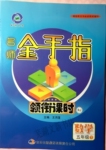
| |||||||||||||||||||||||||||||||||||||||||||||||||||||||||||||||||||||||||||||||||||||||||||||||||||||||||||||||||||||||||||||||||||||||||||||||||||||||||||||||||||||||||||||||||||||||||||||||||||||||||||||||||||||||||||||||||||||||||||||||||||||||||||||||||||||||||||||||||||||||||||
 名师金手指领衔课时系列答案
名师金手指领衔课时系列答案科目:高中英语 来源: 题型:054
完形填空,阅读下面短文,掌握其大意,然后从各题所给的四个选项中,选出最佳选项。
When people don't know the language, the most common way is 1 communicate through 2 . However, many gestures have different meanings, or on meaning at all, in different parts of the world. In the United States, 3 example 4 your head 5 means “Yes”. In some parts of Greece and Turkey, 6 , this motion can mean “ 7 ”. In Southeast Asia , nodding your head 8 a polite way of 9 “I heard you”.
In ancient Rome, 10 the emperor wanted to spare someone's life, he would put his 11 up. Today in the United States, when someone put his/her thumb 12 , it means“ 13 is all right”. However in Sardinia and Greece, the gesture is insulting and 14 not be used there.
In the United States, 15 your clasped hands 16 your head means “I' m the champion” or “I'm the winner”. It is the sign fighters make 17 they win a fight. When a leading Russian Statesman made this gesture after a White House meeting, Americans misunderstood and thought he meant he was a winner. In Russia, however, it is a sign of 18 .
In the United States, 19 your hand tip with the thumb and index finger in a circle and the 20 three fingers spread out means “Everything is OK” and is frequently used by astronauts and politicians. In France and Belgium, it can mean “You are worth nothing”.
|
(1)A.to |
B.on |
C.for |
D.of |
|
(2)A.smiles |
B.with |
C.of |
D.language |
|
(3)A.for |
B.with |
C.of |
D.about |
|
(4)A.nodding |
B.tossing |
C.nodded |
D.tossed |
|
(5)A.upAnd down |
B.toAnd fro |
C.backAnd forth |
D.neckAnd neck |
|
(6)A.but |
B.otherwise |
C.however |
D.yet |
|
(7)A.No |
B.Yes |
C.OK |
D.Go |
|
(8)A.be |
B.is |
C.am |
D.are |
|
(9)A.say |
B.said |
C.says |
D.saying |
|
(10)A.when |
B.after |
C.since |
D.while |
|
(11)A.finger |
B.thumb |
C.index |
D.hand |
|
(12)A.down |
B.above |
C.up |
D.below |
|
(13)A.Nothing |
B.Everything |
C.Nothing |
D.Anything |
|
(14)A.must |
B.can |
C.might |
D.should |
|
(15)A.to raise |
B.raising |
C.to be raised |
D.raised |
|
(16)A.above |
B.down |
C.below |
D.up |
|
(17)A.when |
B.after |
C.since |
D.while |
|
(18)A.friends |
B.friendship |
C.friendly |
D.being friend |
|
(19)A.hold |
B.holding |
C.held |
D.to be held |
|
(20)A.no |
B.other |
C.another |
D.either |
查看答案和解析>>
科目:高中英语 来源:英语教研室 题型:054
完形填空,阅读下面短文,掌握其大意,然后从各题所给的四个选项中,选出最佳选项。
When people don't know the language, the most common way is 1 communicate through 2 . However, many gestures have different meanings, or on meaning at all, in different parts of the world. In the United States, 3 example 4 your head 5 means “Yes”. In some parts of Greece and Turkey, 6 , this motion can mean “ 7 ”. In Southeast Asia , nodding your head 8 a polite way of 9 “I heard you”.
In ancient Rome, 10 the emperor wanted to spare someone's life, he would put his 11 up. Today in the United States, when someone put his/her thumb 12 , it means“ 13 is all right”. However in Sardinia and Greece, the gesture is insulting and 14 not be used there.
In the United States, 15 your clasped hands 16 your head means “I' m the champion” or “I'm the winner”. It is the sign fighters make 17 they win a fight. When a leading Russian Statesman made this gesture after a White House meeting, Americans misunderstood and thought he meant he was a winner. In Russia, however, it is a sign of 18 .
In the United States, 19 your hand tip with the thumb and index finger in a circle and the 20 three fingers spread out means “Everything is OK” and is frequently used by astronauts and politicians. In France and Belgium, it can mean “You are worth nothing”.
|
(1)A.to |
B.on |
C.for |
D.of |
|
(2)A.gestures |
B.with |
C.of |
D.language |
|
(3)A.for |
B.with |
C.of |
D.about |
|
(4)A.nodding |
B.tossing |
C.nodded |
D.tossed |
|
(5)A.upAnd down |
B.toAnd fro |
C.backAnd forth |
D.neckAnd neck |
|
(6)A.but |
B.otherwise |
C.however |
D.yet |
|
(7)A.No |
B.Yes |
C.OK |
D.Go |
|
(8)A.be |
B.is |
C.am |
D.are |
|
(9)A.say |
B.said |
C.says |
D.saying |
|
(10)A.when |
B.after |
C.since |
D.while |
|
(11)A.finger |
B.thumb |
C.index |
D.hand |
|
(12)A.down |
B.above |
C.up |
D.below |
|
(13)A.Nothing |
B.Everything |
C.Nothing |
D.Anything |
|
(14)A.must |
B.can |
C.might |
D.should |
|
(15)A.to raise |
B.raising |
C.to be raised |
D.raised |
|
(16)A.above |
B.down |
C.below |
D.up |
|
(17)A.when |
B.after |
C.since |
D.while |
|
(18)A.friends |
B.friendship |
C.friendly |
D.being friend |
|
(19)A.hold |
B.holding |
C.held |
D.to be held |
|
(20)A.no |
B.other |
C.another |
D.either |
查看答案和解析>>
科目:高中英语 来源:导学大课堂必修二英语人教版 人教版 题型:054
| |||||||||||||||||||||||||||||||||||||||||||||||||||||||||||||||||||||||||||||||||||||||||||||||||||||||||||||||||||||||||||||||||||||||||||||||
查看答案和解析>>
科目:高中英语 来源:导学大课堂必修四英语人教版 人教版 题型:054
| |||||||||||||||||||||||||||||||||||||||||||||||||||||||||||||||||||||||||||||||||||||||||||||||||||||||||||||||||||||||||||||||||||||||||||||||||||||||||||||||||||||||||||||||||||||||||||||||||||||||||||||||||||||||||||||||||||||||||||||||||||||||||||||||||||||||||||||||||||||||||||
查看答案和解析>>
湖北省互联网违法和不良信息举报平台 | 网上有害信息举报专区 | 电信诈骗举报专区 | 涉历史虚无主义有害信息举报专区 | 涉企侵权举报专区
违法和不良信息举报电话:027-86699610 举报邮箱:58377363@163.com